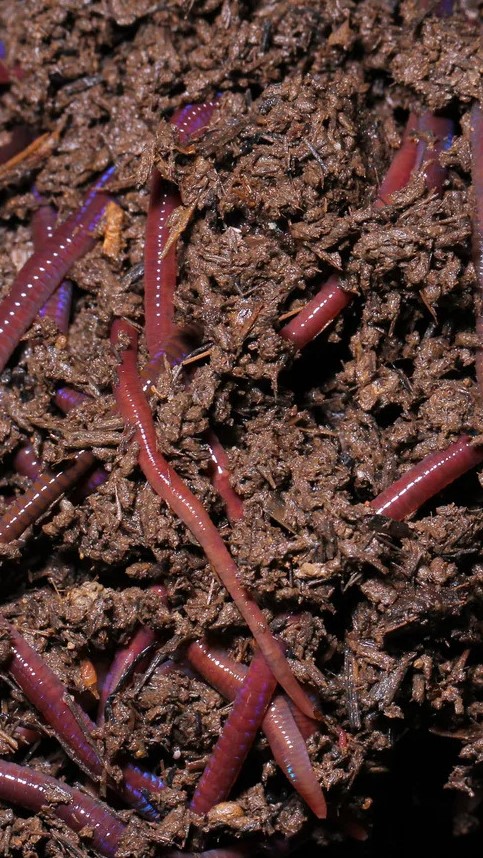Introduction of Worm compost fertilizer
Worm compost is an organic fertilizer made by earthworms. Worm food, also known as vermicast, is simply earthworm droppings, commonly referred to as worm poo or worm poop. As these creatures eat the compost, their waste works as a soil conditioner.
The clumps of particles, which are like particles in the shape of a ball, increase soil aeration and water flow while increasing soil water retention.
How to cast a worm
Making earthworm compost, or vermicomposting, is easy. Worm bins or boxes can be purchased or built and come in a variety of sizes and shapes. However, when you make bins for this work, they should be deep, between 8 and 12 inches (20-31 cm) deep, with drainage holes on the ground.
If they are deep, they can be a problem with the smell. Also, small bins work best around the house, fitting under the sink or a similar place. When making a worm barrier, cover the soil with sand and wet newspaper.
Then, add compost, food or leaf litter and another layer of water-soaked newspaper on the ground. Add worms to food, such as kitchen waste or household waste.
Why Use Worm Castings?
There are many reasons why you should consider using worm castings. They provide all the necessary plant nutrients and improve the soil in which the plants grow.
This fertilizer can be used on almost any type of plant, but it can be applied directly to plants without light. Additionally, nutrients can be applied as top dressing, side dressing, or soil amendment.
The process of composting worms is commonly known as vermicomposting or vermiculture. We have a friend who calls it “worm farming”.
Vermicomposting reduces the amount of yard waste and food that ends up in landfills and turns it into a large amount of free organic fertilizer. But that’s not all, read on to discover the many benefits of using worm castings in your garden.
Benefits of worm castings


Using worm castings to fertilize your lawn has many benefits. In nature, compost worms live in the top few inches of soil, eating decaying plant and animal matter and enriching the topsoil. However, this natural soil composition has been destroyed in many places due to the harsh chemical treatment of plants.
As people realize the importance of natural processes, composting methods such as vermicomposting are becoming more popular.
A worm cast makes a good soil structure
The compost is full of nutrients and microorganisms that are useful for weak plant growth, and they are other things in themselves. All these things will help to improve the condition of the soil. Good soil texture means it can help with water retention, as well as soil aeration.
These properties make earthworm castings an ideal amendment for any type of soil. The worm castings will help maintain the level of the sandy soil and lighten the heavy clay.
The worm cast works as an insect repellent
Applying worm castings to the soil around your plants will also effectively control mites, whiteflies and aphids. This helps reduce the use of pesticides that use harmful chemicals to repel insects.
Worm casts help reduce insect populations on trees that are mulched and fed with worm casts. They have some enzymes that insects don’t like and will stay in it. The number of people in the fertilizer plants with worm casts is lower than those without cast opportunities.
Use worm castings as a compost starter
Worm compost is a good compost starter if you are starting your compost outside. They can start your composting ecosystem.
Microbial activity and worm castings can also improve the health of your compost pile.
Controls some plant diseases and pests
Casting can also prevent certain plant diseases, such as root and crown rot, and wilt. And that’s not all! These sprays also help against pests such as aphids, mites and scale insects!
They can also help plants withstand heat, drought, and other stresses. And because earthworm casting is quick, it’s hard to overdo it, making it a great solution for new gardeners!
Worm casting improves plant growth
Plants need nutrients to thrive, and worm castings are one of the best places, acting as natural fertilizers.
Good soil is at the top of the list for promoting plant growth. If you feed your plants regularly with worm castings, they will look better and grow faster. The high nitrogen content of worm castings helps plants produce more leaves and flowers.
Earthworm casts make the soil fertile
Worm castings can be used to improve the fertility of low-lying soils and rare materials. Is it dangerous? Worms turn organic waste like food waste and other kitchen waste into earthworm casts that provide useful bacteria and enzymes for better plants.
They are rich in nutrients such as phosphorus, potassium, calcium, magnesium, iron and manganese.

